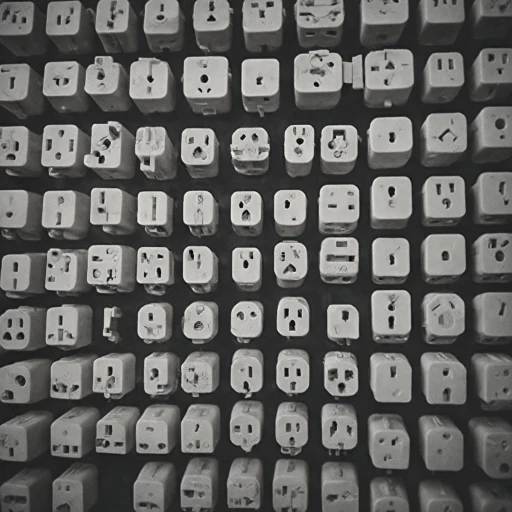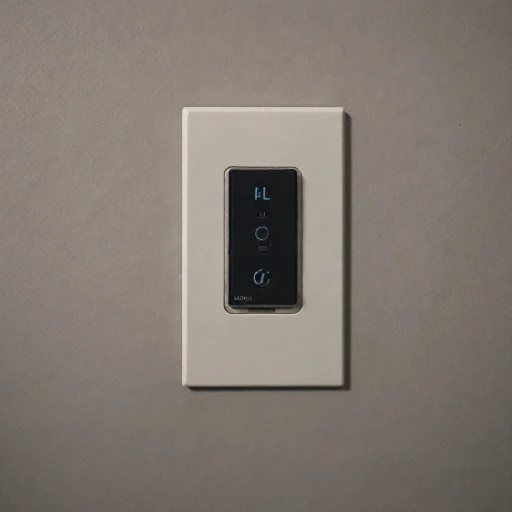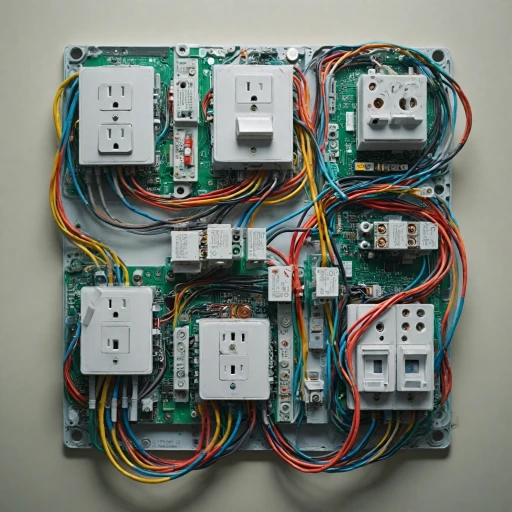
Understanding Smart Lighting Controllers
Exploring the Basics of Smart Lighting Controllers
Smart lighting controllers are at the heart of modern digital lighting systems, offering a seamless way to manage and customize your home’s lighting. These devices allow you to control various lighting elements, such as LED lights, through wireless or wired connections. They can be integrated with different modules, like DMX controllers, to create dynamic lighting scenes and effects.
When you compare products, you'll find that smart lighting controllers come with various features, including dimming capabilities, multiple channels for DMX control, and compatibility with occupancy sensors. These features enable you to create personalized lighting scenes that can be easily adjusted to suit different moods or activities in any room.
One of the key advantages of using a smart lighting controller is the ability to manage your lighting remotely. With wireless controls, you can switch lights on or off, adjust brightness, and even change colors from your smartphone or a dedicated wall station. This flexibility not only enhances convenience but also contributes to energy efficiency by allowing you to power down lights when they're not needed.
Smart lighting controllers often include input options for various control modules, allowing for integration with other smart home devices. This means you can add or remove components as needed, ensuring your system remains adaptable to future technological advancements.
For those interested in specific product features, it's essential to consider the warranty and support offered by manufacturers. Many products come with free shipping and comprehensive support to ensure a smooth installation and operation process.
To dive deeper into the technical aspects and compatibility considerations, you might want to explore smart light switches without a neutral wire, which can be crucial for certain installations.
Benefits of Using a Smart Lighting Controller
Why Smart Lighting Controllers Are a Game Changer
Understanding the multitude of benefits that a smart lighting controller can bring to your home is essential for making an informed decision. With rapid advancements in digital lighting technology, smart lighting solutions offer a seamless integration with modern lifestyles.- Energy Efficiency and Cost Savings: A significant advantage of smart lighting controllers is their ability to optimize energy consumption. By utilizing voltage power regulation, sensors, and dimming, smart controllers reduce unnecessary electricity usage. With specific modules like load controllers and occupancy sensors, lighting is automatically adjusted based on presence, which translates into lower electricity bills.
- Customization and Flexibility: Smart lighting controllers offer vast customization options, accommodating different moods or activities by changing scenes. Whether you want bright lights for work or dim lights for relaxation, adjusting scenes or even switching between them is made simple. With options to add or remove lighting setups as you wish, developing tailored lighting controls is easier than ever with dmx channels and smart switch systems.
- Convenience and Ease of Use: Modern controllers often feature wireless capabilities, allowing users to control lighting systems remotely. With mobile apps and digital interfaces, managing your home lighting is no longer constrained to physical wall stations. Effortlessly change lighting conditions with a touch of a button or a voice command, streamlining your daily routines.
- Enhancing Aesthetic Appeal: Integrating led lighting with smart controllers can elevate your home’s ambiance. By setting unique lighting scenes or tweaking dimming systems, you can transform any room to reflect your desired aesthetic. Advanced control modules offer the capability to set creative and impressive lighting displays with ease.
- Warranty and Product Support: When investing in a smart lighting controller, many products come with a robust warranty, offering free shipping and support. This offers peace of mind when integrating complex dmx lighting systems and ensures longevity and reliability of the control modules.
Challenges in Implementing Smart Lighting Solutions
Common Obstacles in Smart Lighting Implementation
Implementing smart lighting solutions can offer numerous benefits, but it also comes with its set of challenges. These challenges can range from technical hurdles to issues related to user experience. For those looking to integrate a lighting controller for the first time, understanding these potential obstacles is crucial for a smooth and successful transition.
Integration and Compatibility
One of the primary challenges is ensuring that your lighting controls are compatible with your existing setup. Using a lighting controller that syncs well with your current digital lighting system is vital. There are different dmx channels, control modules, and dimming systems available, and it's essential to compare products carefully to determine the right one for your needs.
Complexity and User Experience
Smart lighting systems often come with an array of features such as wireless control, advanced scenes built into the system, and multiple dmx control and channels. While these features offer enhanced flexibility, they can also lead to a steep learning curve for users, especially those not accustomed to technology. Ease of use is a critical factor to consider when selecting a lighting controller.
Technical Limitations
The technical aspects, such as ensuring adequate voltage power and adapting load controllers, can also pose difficulties. Moreover, the presence of occupancy sensors, wall stations, and the right input module adds layers of complexity that can be daunting for individuals unfamiliar with smart lighting technologies.
Cost and Warranty Concerns
The financial investment required is another hurdle. While companies offer free shipping and warranty on specific products, the initial expenditure on smart lighting technology can be significant. Evaluating the long-term savings against the initial costs is essential for making an informed decision.
As technology continues to evolve, it is expected that solutions to these challenges will become more accessible. For more insights on smart lighting innovations, stay connected to industry resources that detail emerging trends and products.
Key Features to Look for in a Smart Lighting Controller
Essential Features of Smart Lighting Controllers
Choosing the right smart lighting controller for your home can significantly enhance your living experience. To make an informed decision, it's crucial to look for key features that align with your needs and existing setup.
- Wireless Connectivity: Most smart lighting controllers offer wireless options including Wi-Fi and Bluetooth. This allows for remote access and control over your lighting, letting you switch lights on or off, or adjust settings from anywhere in your home.
- DMX Control: Lighting controllers with DMX control are ideal for advanced setups, particularly in large spaces or when precise lighting scenes are required. The DMX channels provide detailed lighting controls over multiple lighting products simultaneously.
- Dimming Capabilities: Look for dimming systems that allow smooth transitions. Controllers that support LED lighting dimming provide versatility in creating the desired ambiance. Additionally, modules that offer a wide range of voltage power are advantageous for compatibility with different lighting types.
- Scene Creation: Advanced controllers help you build lighting scenes to match particular moods or occasions. Some products even come with pre-built scenes, reducing setup time.
- Load Controllers and Power Management: Efficient power management is fundamental. Consider choosing products with reliable input options and load controllers that effectively manage power distribution among your lighting systems.
- Integration and Control Options: A good lighting controller should integrate with existing smart home systems and come with easy-to-use wall stations or switches. It should also support occupancy sensors to enhance convenience and energy efficiency.
- Warranty and Free Shipping: When comparing products, examine the warranty offered. A longer warranty suggests confidence in the product's durability. Free shipping options can also make a difference when purchasing online.
By focusing on these features, you can ensure a more harmonious and versatile control over your lighting environment, ultimately improving your home comfort and efficiency.
Popular Smart Lighting Controller Brands
Leading Brands in Smart Lighting Controllers
In the world of smart lighting, finding the right controller that fits your needs can be a game-changer. As you navigate various solutions, some brands consistently rise to the top, offering reliable performance, advanced features, and solid customer support. Here's a look at some of the most reputable brands in the smart lighting industry: 1. Philips Hue Philips Hue stands out as a frontrunner in the market of smart lighting controllers. Known for its seamless integration and extensive compatibility, Philips Hue offers a wide range of products designed to suit various budgets and preferences. Their control modules are equipped with robust DMX control capabilities, lighting scenes built to perfection, and compatibility with major smart home platforms. Philips offers a comprehensive warranty, ensuring peace of mind for consumers. 2. Lutron Lutron has been a leading brand in the lighting control industry for decades. Their smart lighting controllers are known for top-of-the-line features, such as dimming systems and smart occupancy sensors. Lutron's digital lighting controls offer the ability to add or remove channels effortlessly, providing flexibility and customization options. Their wireless modules offer smooth LED lighting management and voltage power adjustments that benefit any room's ambiance. 3. Leviton Leviton's commitment to innovation ensures their lighting controls remain at the forefront of technological advancement. Their smart lighting controllers are highly regarded for channel DMX support and energy-efficient load controllers. The brand's products often come with free shipping, further emphasizing their customer-focused approach. Leviton is committed to offering reliable solutions for both homes and commercial environments. 4. Govee As a player in the smart lighting arena, Govee provides innovative solutions with user-friendly features. Their controllers are designed with intuitive wireless control modules, enabling easy integration with existing smart home systems. Govee products are perfect for creating vibrant lighting scenes, making them ideal for individuals seeking dynamic lighting solutions. 5. Rako Rako distinguishes itself with its comprehensive range of dimming and DMX controller options. Known for adaptability and ease of installation, Rako's products support both wall stations and dmx lighting controls. Ideal for larger scale projects, their modules can handle multiple DMX channels, offering customization and flexibility suitable for any specific product needs. When seeking the best smart lighting controller for your home, comparing the innovative features and reliability offered by these brands can guide your decision-making process. Choose a product that balances design, functionality, and support to truly enhance your space.Future Trends in Smart Lighting Technology
Emerging Trends in Smart Lighting Technology
The evolution of smart lighting technology continues to advance, revealing promising trends set to redefine home environments. Adopters of these innovative solutions are poised to enjoy an enhanced experience, driven by ongoing technical achievements. Here's a glimpse into the future of smart lighting:
- Integration with IoT Ecosystems: The capability for smart lighting to seamlessly integrate with wider Internet of Things ecosystems means greater flexibility and control. It allows for synchronization with other smart devices, creating cohesive and intuitive living environments.
- Advanced DMX Control: With the increasing adoption of DMX lighting systems, users can anticipate more sophisticated DMX channels that promise enhanced precision in lighting control and dimming systems. This advancement is especially notable in the realm of LED lighting.
- Enhanced User Interface: Upcoming products strive to offer more intuitive control modules and lighting controls, improving user interaction. This includes the development of smarter wall stations and easier-to-use digital lighting controls.
- Focus on Energy Efficiency: The move towards load controllers that optimize voltage power usage is gaining traction. This focus aims at reducing energy consumption without compromising lighting quality.
- Wireless Module Innovations: Continued improvements in wireless lighting control technologies will enhance power dynamics and product warranties, promising more durable systems with free shipping and better sustainability.
- Personalized Lighting Scenes: There's an increasing interest in lighting controls that can create unique, customizable scenes built to match the specific needs of different rooms and occasions.
- Integration of Modern Control Mechanisms: Smart lighting will increasingly leverage occupancy sensors and voice-activated control systems, adding a layer of convenience and new possibilities in lighting scenes and controls.
By keeping an eye on these trends, consumers can make informed decisions when comparing products and selecting specific modules that best fit their lifestyle and technological preferences.













